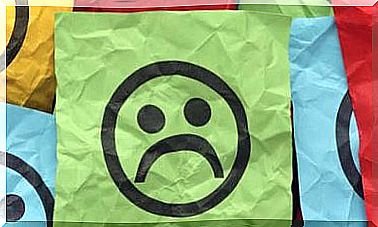How To Fast 2 Days A Week
The body has mechanisms to obtain energy from its reserves. The 5: 2 diet proposes activating them in cycles of two days a week.

The universe of diets is infinite. The issue of overweight is so worrying (40% of the Spanish population has problems in this regard) that new diets emerge every year. And unfortunately, not always suitable or harmless.
The 5: 2 diet emerged a few years ago in the United States. There are numerous books that talk about it and even with different versions. It consists of doing a couple of days of fasting – meaning fasting is a very low energy diet – together with five days of “normal” eating in which a more or less balanced diet is followed without specific restrictions.
Lose weight and improve your health by taking a break from your intake
There are two ways to deal with this type of fast:
- Michael Mosley and Mimi Spencer ( The Two-Day Diet , Ed. Urano) suggest that the two days of fasting be loosely interspersed throughout the week, consuming about 500 calories from unrefined plant foods.
- Michelle Harvie and Tony Howell ( The two-day diet , Ed. Today’s Topics) propose doing the two days of fasting in a row and basically eating protein.
The novelty of these diets is that they integrate fasting as a resource two days a week. They differ from the classic very low-energy diets based on protein foods or preparations that are sometimes taken for weeks. With this system it seems that the weight goes down, but not only that.
Benefits beyond weight loss
There are studies that show that doing this type of fast has many advantages :
- Decreased plasma insulin
- Less lipids in the blood
- Less cholesterol
- Less inflammation markers
These diets thus put on the table the debate about the beneficial effects of fasting. Therefore, whether you want to lose weight or not, a well-managed punctual fast can have its advantages.
The keys to understanding the basics of the 5: 2 diet are:
1. Why are carbohydrates limited?
Carbohydrates and their most basic unit, glucose, are the body’s main and fastest source of energy. When this type of nutrient is reduced to the maximum, the body is forced to turn to fat – its main energy reserve -, which helps to lose weight.
2. Does the body have glucose stores?
Yes; in fact the muscle and liver store glucose reserves in the form of glycogen and the body metabolizes it before turning to fats. But these are limited reserves. The expenditure of glycogen is one of the reasons why water is lost when fasting.
3. Is it necessary to take protein when fasting?
It depends. With them, you avoid a decrease in muscle mass, a common effect of low-calorie diets. In addition, proteins seem to be more filling and their metabolism requires more energy, which can be an additional advantage if you want to lose weight.
4. Can you get into ketosis on this diet?
Yes, especially if you do a lot of physical activity. When not enough carbohydrates are taken in, metabolizing body fat for energy produces ketone bodies. If it is a healthy person and this occurs for a short time, there are hardly any negative effects.
5. Better to fast on consecutive days or interleaved?
The most effective way for the body to start the proper metabolic pathways when food is scarce is to perform the two days of fasting in a row, but it is also usually harder. If the excess weight is not very marked, it is preferable to intersperse them throughout the week.
6. And wouldn’t a single fast day be preferable?
A day of fasting can have its advantages but it can be insufficient if you want to lose weight. Naturopathic medicine usually advises, in fact, to fast one day a week. This is a good practice to maintain weight, improve well-being, or simply give your digestive system a break.
7. Can everyone follow this diet?
Not all people can follow it. People under 18 years of age, pregnant women or people suffering from a disease should not follow this type of diet in principle. For obvious reasons, they are not recommended to those who have had an eating disorder.
8. What hormones are affected by fasting?
Fasting markedly lowers insulin and leptin levels, which can be beneficial to the body. If insulin levels are too high because there is a strong influx of glucose or it is ineffective, the increase in fat deposits from glucose is favored.
9. Does this diet work for everyone?
No diet works 100% in all cases. It depends on many factors, such as age, weight, previous eating habits, physical activity, genetics, etc. It is not therefore an infallible diet, but it is proven that its effectiveness is high and can be healthy.
10. What foods are recommended in general?
Outside of the two days of fasting, a varied and balanced diet is proposed , moderating foods rich in fats and refined sugars. On fast days Harvie and Howell advocate essentially taking protein, while Mosley and Spencer advise vegetable juices and soups.
11. What drawbacks can it have?
For some people, eating so little two days a week can be very difficult. In people who are very sedentary and over 40 years of age, weight loss can be very small. If you choose fasting days in a row, you are likely to feel tired. .. but it depends on each one.
Do not miss it…
If you are interested in this topic, you will surely like our 7-day detox plan to learn how to do a detox diet easily, safely and respecting your body.









